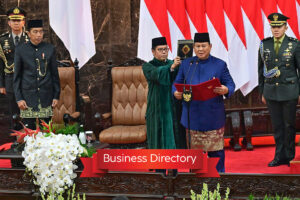Indonesia has maintained its position as a sought-after destination for foreign workers, offering a plethora of reasons that make it an enticing choice for international job seekers. Below, we will explore the backdrop and the compelling factors that continue to establish Indonesia as one of the primary destinations for foreign labor.
Indonesia remains an attractive hub for foreign labor, as evidenced by the Ministry of Manpower’s (MoM) data, which reported 121,206 foreign workers (known as TKA in Indonesian) in the country as of September 2023.
This data, accessible through the Manpower Information Portal, reveals the utilization of foreign labor based on the approval of the Foreign Manpower Utilization Plan (RPTKA). These foreign workers encompass 54,687 newcomers, 45,171 extensions, and 21,348 short-term laborers.
The surge in foreign workers in Indonesia commenced with 9,997 individuals in January 2022, followed by 11,727 in February and an additional 15,248 in March.
April saw an influx of 9,692 foreign laborers, followed by 14,748 in May and 11,599 in June, resulting in a cumulative total of 73,011 foreign workers over six months.
The trend continued with another 14,753 foreign workers arriving in July, and 15,292 in September, culminating in a total of 121,206 foreign workers from January to September.
The MoM noted, “The total number of documents for the approval of the Foreign Manpower Utilization Plan issued in Indonesia in September 2023 reached 15,292 documents,” as quoted on Thursday, October 19, 2023.
What Makes Indonesia a Preferred Destination for Foreign Workers?
Indonesia’s allure for foreign labor hinges on several key factors. Notably, its stable and rapid economic growth stands out as a pivotal attraction. Data from the Central Statistics Agency (BPS) reveals that Indonesia’s economy in the third quarter of 2023 sustained robust growth, registering a 4.94% year-on-year rate, albeit slightly lower than the previous quarter’s 5.17% year-on-year expansion. The future of economic growth in the country will be buttressed by strong domestic demand, encompassing private consumption, government expenditure, and investments. With these conditions in place, Bank Indonesia anticipates that Indonesia’s economic growth for 2023 will range between 4.5% and 5.3%.
This consistent economic growth has ushered in burgeoning sectors across Indonesia, generating diverse employment opportunities. Industries such as manufacturing, construction, tourism, agriculture, and fisheries all require additional labor. This dynamic job market positions Indonesia as a desirable destination for foreign workers in pursuit of employment.
Furthermore, the majority of foreign workers who migrate to Indonesia bring specialized skills that are indispensable for specific projects. They fill critical gaps in sectors that may be challenging to staff with local talent. For instance, large-scale construction projects or the oil and gas industry necessitate foreign labor with distinctive expertise.
This perspective is also endorsed by Indonesia’s Coordinating Minister for Maritime and Investment, Luhut Binsar Pandjaitan. He asserts that Indonesia’s demand for foreign labor arises from the inadequacy of local human resources to meet the existing capacity.
“(To investors) you must educate local workers. Because we don’t have enough. In Morowali, we don’t have enough. In North Konawe, there isn’t enough. In Central Halmahera, there isn’t enough. If anyone claims there is enough, come to me,” he said.
Pivotal to the equation is the effect of globalization and advancements in transportation technology, which have rendered the movement of labor across the globe more accessible. A growing number of individuals have easy access to information regarding employment opportunities in various countries, including Indonesia. They can effortlessly explore job vacancies and pursue their careers on an international scale.
Above all, the Indonesian government’s concerted efforts to streamline the licensing procedures for foreign labor seeking employment in the country, particularly within the Capital City of the Nation (IKN), have been a game-changer. President Jokowi has extended a warm welcome to foreign labor to work in the Capital City of the Nation. He rolled out the red carpet through Government Regulation Number 12 of 2023 concerning Business Licensing, Business Facilitation, and Investment Facilities for Business Actors in the Capital City of the Nation.
The regulation, enacted by Jokowi on March 6, clearly outlines the conditions for business actors conducting operations in the Capital City of the Nation, allowing them to employ foreign labor for specific positions, in adherence to statutory regulations.
In summation, Indonesia’s continued status as a prime destination for foreign labor can be attributed to its robust and consistent economic growth, the need for specialized skills, regional interconnections, and a welcoming stance toward foreign expertise. With the government’s increasingly accommodating stance toward foreign labor, Indonesia remains a magnet for job seekers from diverse corners of the world.





 20% off today. Whatsapp us!
20% off today. Whatsapp us!